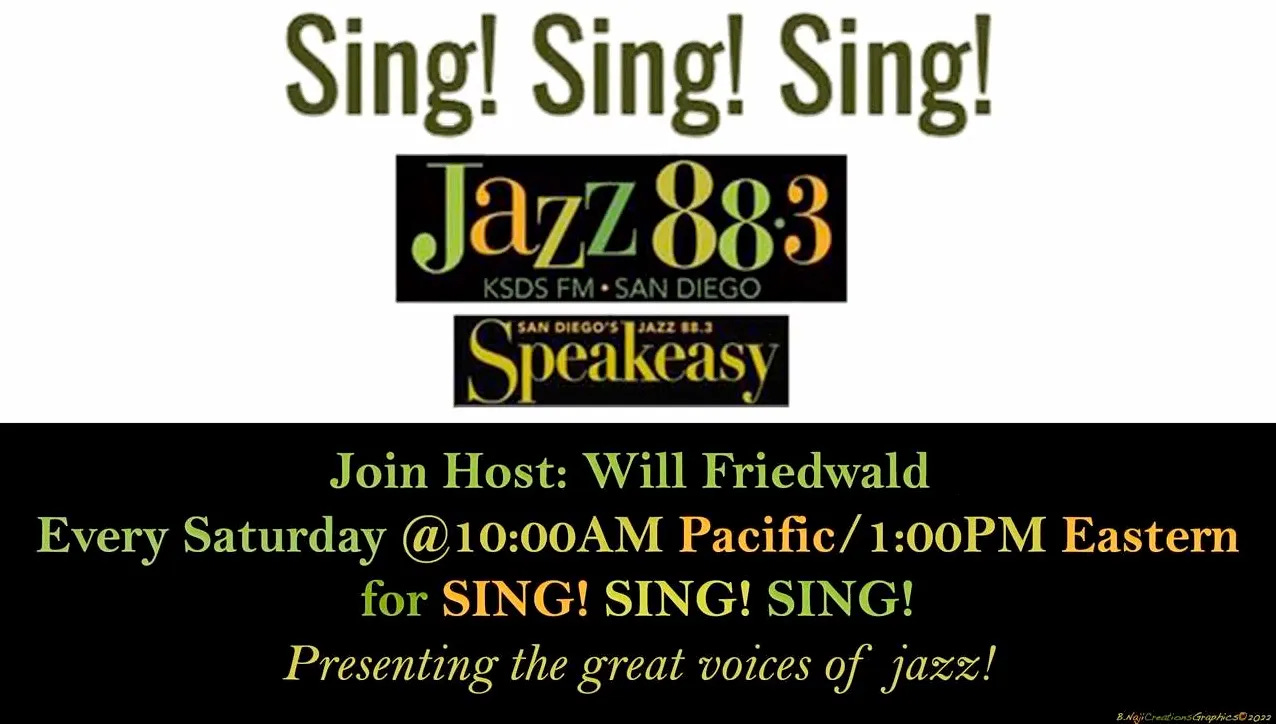SU
Two years after “Are You Lonesome Tonight,” the next important song to include a special recitation would seem to be “Laugh, Clown, Laugh.” As we’ve seen, “Are You Lonesome Tonight” was a fairly conventional lament of lost love that inexplicably had a recitation attached. Further, that recitation, equally unexpectedly , was all about life and love as distilled through showbiz metaphors, drawing on both Pagliacci and the “All The World’s a Stage” speech from As You Like It.
“Laugh, Clown, Laugh” took these ideas even further and made more sense. This time, the entire song was about life and love as distilled through showbiz metaphors, and the recitation feels more organic to the rest of the song. While “Laugh, Clown, Laugh” also referred indirectly to Pagliacci and the “All The World’s a Stage” monologue, now those references seemed much more intertwined with the larger message of the song. Like “Lonesome,” “Clown” went on to become a standard that is still performed today, although, unlike “Lonesome,” it never became a huge hit single in the rock ‘n’ roll era.
The Songwriters:



Ted Fio Rito (1900-1971) was one of a select handful of songwriter-bandleaders who flourished in the 1920s and ‘30s, a group that included Isham Jones, Victor Young, and, most famously, Duke Ellington; in later generations, that was the professional ideal that many younger musicians, like Nelson Riddle, Henry Mancini, and even Burt Bacharach, aspired to.
Fio Rito was born in Newark, grew up in New York, came of age musically in Chicago, and spent the most visible part of his career leading big bands in California. In Hollywood, during the Golden Age of the studio system in the mid to late 1930s, he was the number one bandleader patronized by the movie colony elite. As a co-leader of a Chicago-based band with Dan Russo, and then with his own group in Los Angeles, he made dozens if not hundreds of recordings, and wrote approximately a hundred songs. Among the best known of these today are “Toot Toot Tootsie,” “No No Nora,” “Charlie My Boy,” “Now That You’re Gone,” “Alone at a Table for Two,” “Then You’ve Never Been Blue,” “I Never Knew,” “Roll Along, Prairie Moon,” and “Lily of Laguna.”
(As a side note, the young Tony Bennett knew Ted Fio Rito during the 1950s in Las Vegas, when the veteran bandleader was conducting for singers and dancers in the casino showrooms. Tony described Fio Rito as a charismatic but tragic figure, who had lost everything - including the rights to all of his classic songs - as a consequence of an addiction to gambling. Talking to me a lifetime later, Tony vividly remembered this as one of the factors that scared him away from hanging around the tables and wheels of Vegas.)
The lyricists, Sam M. Lewis and Joe Young, are only credited with their last names on the sheet music. Both were substantially older than Fio Rito, and were closer to the Tin Pan Alley generation rather than Hollywood or Broadway.
Sam Lewis (1885-1959) spent most of his career in New York. Among his better-known songs are two that help define their eras, "Has Anybody Seen My Gal?" and "How Ya Gonna Keep 'em Down on the Farm (After They've Seen Paree)?"; a pair of Jolson perennials, "I'm Sitting on Top of the World” and "Rock-a-Bye Your Baby with a Dixie Melody”; and a few jazz standards that are still frequently played today: "For All We Know,” "Just Friends," "Street of Dreams,” and especially “Dinah.” There’s also "In a Little Spanish Town" and the American lyrics to "Gloomy Sunday" (as distinct from the Hungarian and the British lyrics).
Joe Young (1889-1939) also came of age in the Tin Pan Alley and WW1 years - as in "Just a Baby's Prayer at Twilight (For Her Daddy Over There)" - but, surprisingly, he enjoyed most of his biggest hits in the 1930s. “In a Shanty in Old Shanty Town," "Lullaby of the Leaves," "Was That the Human Thing To Do?," “Annie Doesn't Live Here Anymore,” “You're a Heavenly Thing," "Whistle and Blow Your Blues Away," and a song always included in every Fats Waller tribute, lately delivering kisses on the bottom to both Paul McCartney and Marilyn Maye, "I'm Gonna Sit Right Down and Write Myself a Letter."
PS: “Laugh, Clown, Laugh” was such a big hit in 1928 that the three authors reconvened a few months later for what was essentially a sequel - another philosophical song with a recitation - “King for a Day.”
The Movie:
It’s not fully appreciated how much the movie industry and the music industry were interconnected practically from the beginning. Well before the dawn of talking pictures, there was already a long history of movie theme songs from deep within the silent era. Coincidentally, most of the better known silent-film theme songs are waltzes; to name four: “Jeannine (I Dream of Lilac Time)” from Lilac Time, “Dianne” from 7th Heaven, “Charmaine” from What Price Glory, and “Ramona” from Ramona. Probably the most famous of these late-silent cinematic waltzes is “Laugh, Clown, Laugh” from the motion picture of the same name.
MGM apparently commissioned the song “Laugh, Clown, Laugh” while that film was in production in 1927, a moment when everybody was playing and singing “Are You Lonesome Tonight?” With the inspiration of that earlier song, as well as the nature of the film Laugh, Clown, Laugh, it doesn’t seem like writing this particular song would have been the biggest challenge that these three highly-experienced songwriters had ever faced. It was almost a foregone conclusion that it would be a waltz, and the idea of the recitation was likely inspired by “Lonesome.” As we see, many of the specific lines and the overall concept are paraphrased from Ruggero Leoncavallo’s 1892 opera and William Shakespeare’s 1599 monologue.
“Laugh, Clown, Laugh” might be handily described as a “pop Pagliacci,” even as the 1917 “Poor Butterfly” was regarded as a Tin Pan Alley answer to Madama Butterfly. This was a moment when grand opera was much closer to popular music, and listeners to both of those songs would have all known what they were spinning off of.
The Song:
The song itself is laid out in a central 32-bar chorus (the structure is ABAB’, as we shall see) with two verses, and a recitation that comes in two distinct sections. When the song was first published, apparently the first edition did not include the spoken section. Some copies of the sheet music do not have it and others have the following note: “Author’s Note: In answer to many requests of the public, the recitation has been added to the copy on the back page. Respectfully, The Authors.”

Verse 1
Life is a play and we all play a part
The lover, the dreamer, the clown
The dreamer and lover are always in tears
The clown spreads sunshine around
The life with a smile is the life worthwhile
So clown till the curtain comes downVerse 2
Life is a joke and the laugh is on us
We grumble, we sorrow, we pine
We all know that laughter is is good for the soul
A smile’s a real welcome sign
So why don’t we grin till that heart within
Says “this is the road to sunshine.”A
Even though you're only make believing
Laugh, clown, laugh!
Even though something inside is grieving
Laugh, clown, laugh!B
Don't let your heart grow too mellow
Just be a real punchinello, fellowA
You're supposed to brighten up a place
And laugh, clown, laugh!
Paint a lot of smiles around your face
And laugh, clown, don't frownB’
Don’t let the world know your sorrow
Be a pagliaccio - laugh, clown, laugh!
(Abbey Lincoln sings an additional chorus, I would imagine written by the singer herself, as follows; Cécile McLorin Salvant includes these extra lyrics in her 2015 recording, part of the soundtrack album to the HBO biopic Bessie.)
Though they must suspect you're masquerading
Laugh, clown, laugh, clown
They don't want to see your bright smile fading
Laugh, clown, laugh, clown
Give them their phony expressions
Go on creating those false impressions
Never let your looks be too revealing
Laugh, clown, laugh, clown
Can't afford to show them what you're feeling
Laugh, clown, don't frown
Trouble can not last forever
Play the fool, be clever
Laugh, clown, laugh, clown
Laugh, clown, laugh
Recitation:
This is credited on the back page just to “Lewis & Young,” with no mention of Fio Rito. The publisher includes the following: “Authors’ Note: First 16 lines fit ‘Viesta la Giubba.’ Last 7 lines fit the bars the chorus of ‘Laugh, Clown, Laugh.’ Respectfully, The Authors.”
1 The World is a masquerade party
2 And we All have our own mask to wear;
3 The rich man pretends he is happy
4 And the pauper pretends he don't care.
5 But underneath all these false faces
6 The comedy doesn't go far;
7 At night when we look in the mirror
8 We see ourselves just as we are.
9 But aren't we all of us actors,
10 We're all of us part of a show,
11 We appear on the scene without asking
12 And we leave without wanting to go.
13 I played the part of a lover--
14 To others my song may have charms,
15 But the one that keeps my heart singing
16 Is a million miles from my arms.1 My mask is all worn out with tear drops,
2 At night when it's laid on the shelf;
3 I may make the World think I'm merry,
4 But I can't hide the truth from myself
5 No matter how much it may hurt.
6 I must keep on acting, acting, acting!
7 Just like Pagliacci - Laugh, clown, Laugh!
The Original 1928 Recordings:
The usually reliable secondhandsongs.com states that the premiere recording is by “Arthur Ball,” made on February 11, 1928. However, since I can’t find any trace of an artist with this name, I have to assume this is a typo and the singer they meant is the world-famous baritone Arthur Fields, recording for Edison on an extra long 10” disc (3:40). Fields includes the first verse, and when he finishes the first chorus, he goes into the recitation - up to the sixth line. Then, after what is meant to sound like a cruel laugh, he skips the last line, and reprises the last A and B’ of the chorus. Two other early male versions, Irving Kaufman (who seems to have made several discs under different names) and a particularly strong one on Victor by tenor Cooper Lawley, roughly follow the same pattern, although the other vocal versions, being shorter, generally end right after the recitation.
Arthur Fields
Irving Kaufman as “Harry Smith,” personality recording (Cameo)
Irving Kaufman with William F. Wirges and His Orchestra (dance band recording) (Brunswick 3910)
Cooper Lawley (Victor)
If you couldn’t get Al Jolson, the next best thing was probably Harry Richman (Henry Reichman Jr., 1895 –1972). His treatment on Brunswick Records is the most exuberantly hammy of them all - and, among other things, was almost certainly the role model for Tony Randall 30 years later.
The song was a natural for Ted Lewis (Columbia) - whose records essentially check off both boxes:they were dance band records while at the same time being personality records.
Still, the Victor recording by Waring’s Pennsylvanians is most often listed in contemporary reference works as the most popular version at the time. The vocal is by the leader, Fred Waring himself. On the whole, it’s not as fun and snappy peppy as many other Waring recordings; it’s a rather serious waltz, in which “Vesti La Giubba” is heard as the band modulates into key for the vocal.
COMING IN “LAUGH, CLOWN, LAUGH” PART 2:
TWO VINTAGE 1928 FOREIGN VERSIONS (but not including the 1942 Nazi Propaganda version which ridicules President Roosevelt - unless somebody asks for it!)
THE LOONEY TUNES CONNECTION
IMPORTANT MODERN / CONTEMPORARY VERSIONS
TONY RANDALL!
Special thanks to Elizabeth Zimmer, as always, not to mention Dan Weinstein, Robert Isaiah, Lawrence Schulman, and Michael Lavine.
Elizabeth: Done. “My folks had an old player piano in our basement in Great Neck, and ‘Laugh, Clown, Laugh’ was one of the rolls I played to pieces, and learned by heart.”
Sing! Sing! Sing! : My tagline is, “Celebrating the great jazz - and jazz-adjacent - singers, as well as the composers, lyricists, arrangers, soloists, and sidemen, who help to make them great.”
A production of KSDS heard Saturdays at 10:00 AM Pacific; 1:00PM Eastern.
To listen to KSDS via the internet (current and recent shows are available for streaming.) click here.
The whole series is also listenable on Podbean.com; click here.
SING! SING! SING!
The Harry Warren & Johnny Mercer Songbook, Part 1
with Vanessa Racci & Robert Lamont (SSS #123 2024-11-23 )
download: <or> play online
"Uncle Sam Blues - The Best of V-Discs"
(SSS #122 2024-11-16 )
Download <OR> Play Online
SLOUCHING TOWARDS BIRDLAND is a subStack newsletter by Will Friedwald. The best way to support my work is with a paid subscription, for which I am asking either $5 a month or $50 per year. Thank you for considering. (Thanks as always to Beth Naji & Arlen Schumer for special graphics.) Word up, peace out, go forth and sin no more! (And always remember: “A man is born, but he’s no good no how, without a song.”)
Note to friends: a lot of you respond to my SubStack posts here directly to me via eMail. It’s actually a lot more beneficial to me if you go to the SubStack web page and put your responses down as a “comment.” This helps me “drive traffic” and all that other social media stuff. If you look a tiny bit down from this text, you will see three buttons, one of which is “comment.” Just hit that one, hey. Thanks!
Slouching Towards Birdland (Will Friedwald's SubStack) is a reader-supported publication. To receive new posts and support my work, consider becoming a free or paid subscriber.









Not sure if TCM/Warner Archive used the song when they did their new score for the home video release of the film (which is extant but not complete).